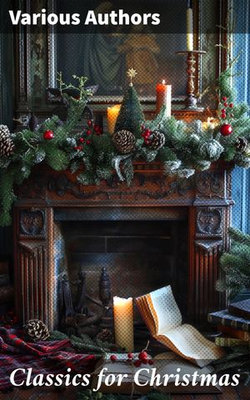Journey into the enchanted world of 'Classics for Christmas,' a diverse anthology that captures the essence of holiday spirit through the eyes of some of literature's most renowned figures. This collection transcends cultural boundaries and time periods, offering an array of styles from the whimsical tales of childhood to the profound reflections on human nature. From the deep musings found in a Dickensian winter to the enchanting realms of Andersen's fairy tales, the anthology embodies the universal themes of generosity, reflection, and joy. Key narratives provide an intricate mosaic of storytelling that invites readers to rediscover the timeless magic of Christmas. The anthology boasts contributions from a rich tapestry of literary giants, whose collective works have shaped the corners of global storytelling. Featuring voices such as Shakespeare'Äôs poetic eloquence, Twain's humor-laden insights, and Alcott's heartfelt narratives, the volume draws from the deep wells of the Romantic, Victorian, and Modernist movements. These authors, alongside laureates like Yeats and Dickens, present a confluence of perspectives that reflect the cultural and historical contexts of their respective eras, seamlessly threading together to illuminate the anthology's central theme of holiday reflection and unity. 'Classics for Christmas' is an essential volume for readers eager to explore the breadth and depth of literary heritage. It offers a unique opportunity to engage with a multiplicity of voices and styles, bound together by the enduring theme of Christmas. As a trove of educational value and immersion, the anthology's dialogues between these masterful storytellers enrich readers' holiday experience, framing the season within a tapestry of insightful and entertaining exchanges that prompt reflection and joy for all ages.




Share This eBook: